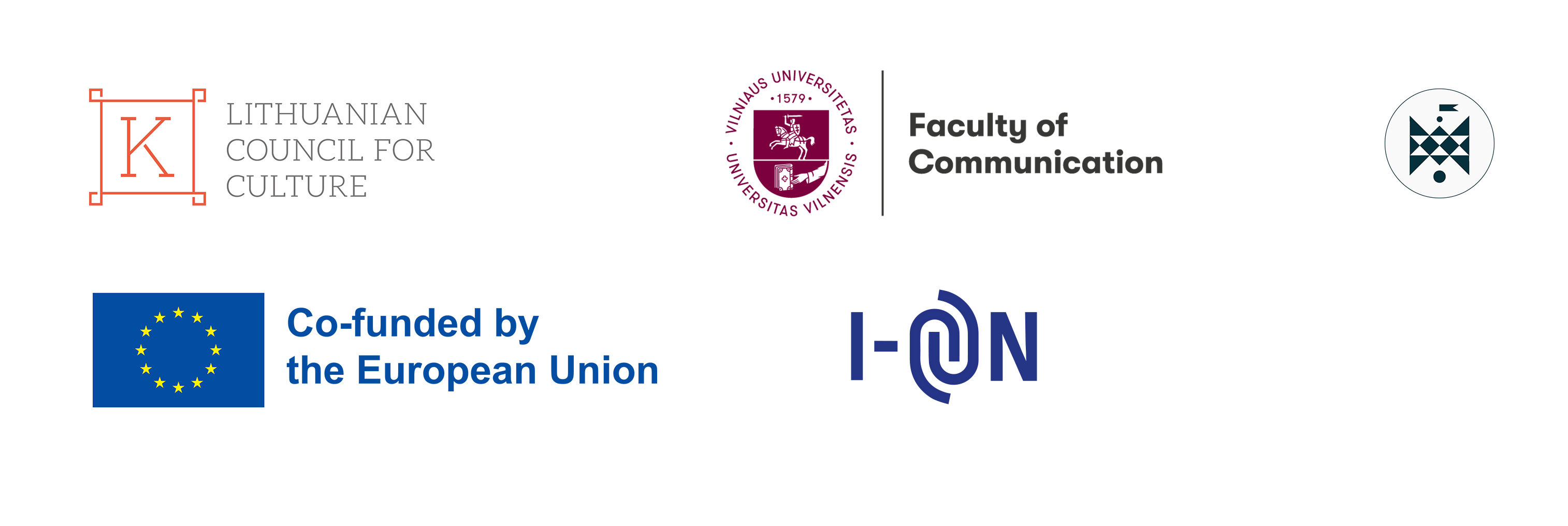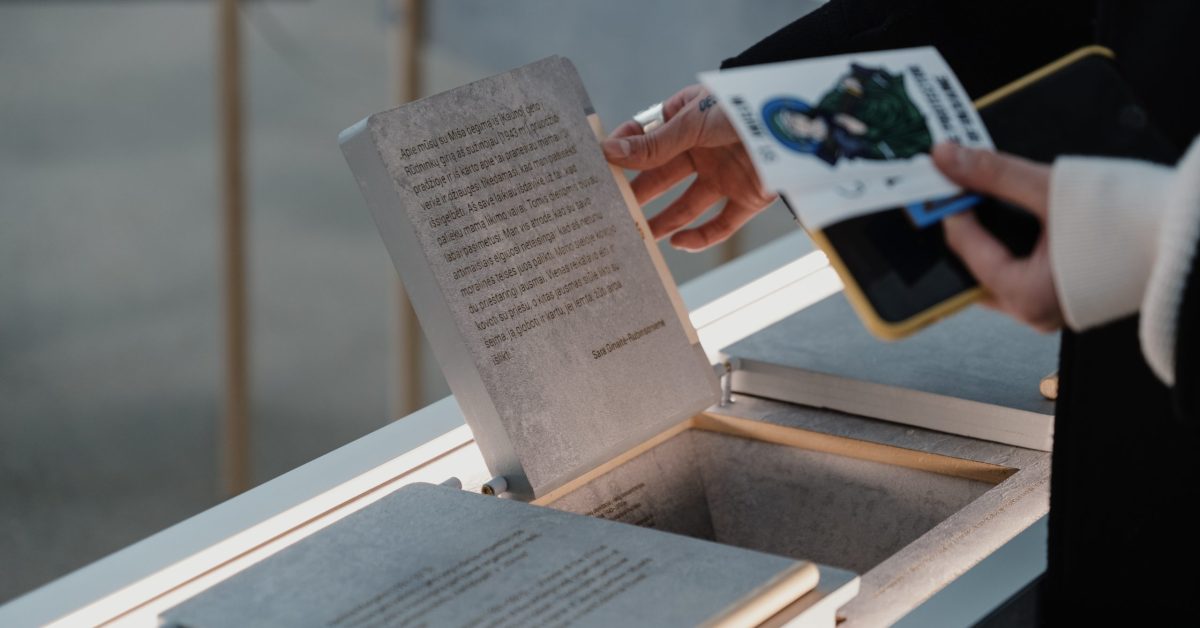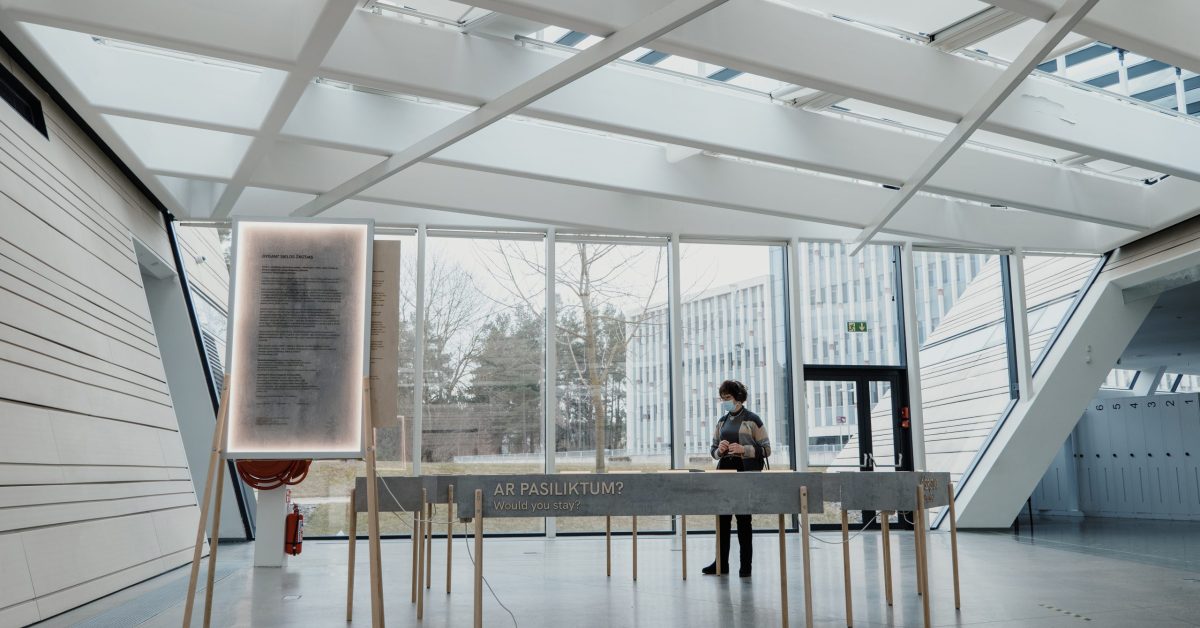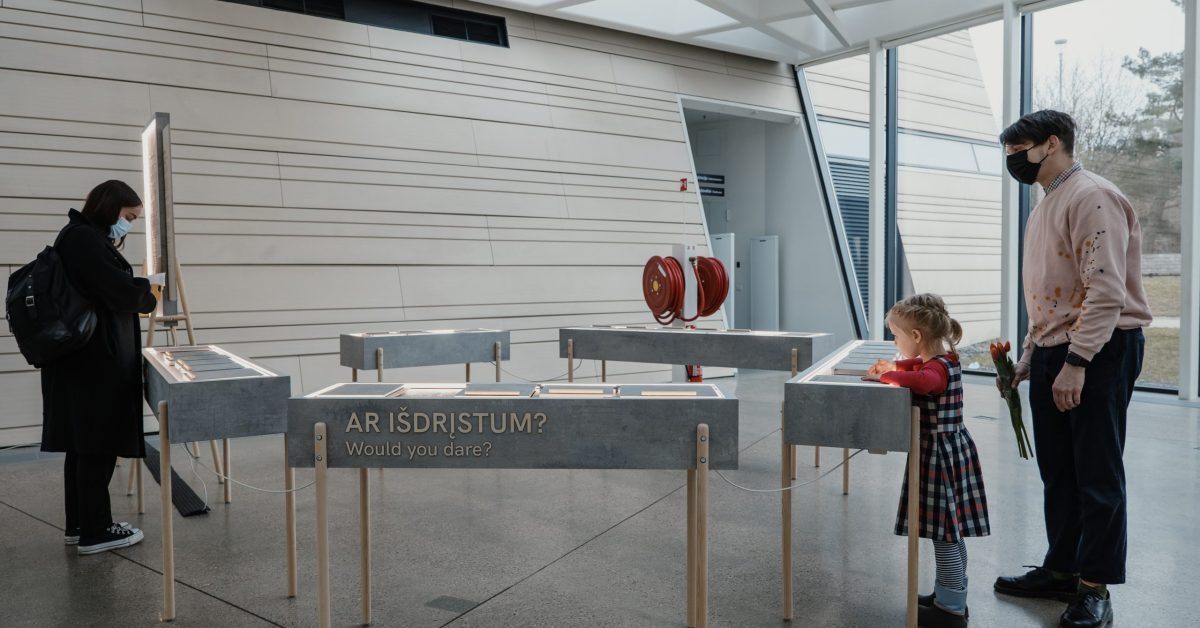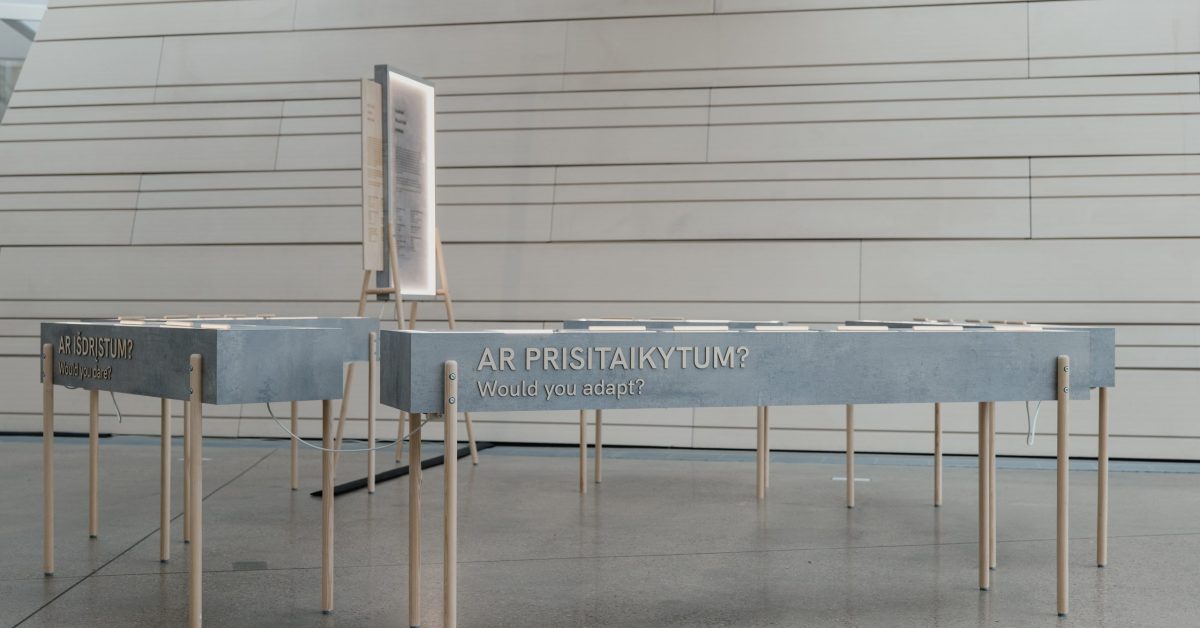Dilemma – a problem, an alternative, a situation that requires a choice between two or more (usually undesirable) options.
Dictionary of the Contemporary Lithuanian Language
Have you ever faced a dilemma? Did you have to choose one of several options knowing that there would be no happy ending? Such choices shock, traumatise and leave wounds of the soul that do not heal for decades.
The emotional burden of war, violence, imprisonment, and the desire to survive in difficult historical circumstances fades over time. The time that passed provides imaginary security and often desensitises the past historical periods or events. However, each of them consists of complex dilemmas that ordinary people had to solve, and then live with the consequences and feelings of their choices. Those people were like any of us: daughters, sons, parents, grandparents.
The exhibition reveals the dilemmas faced by the young women and girls seeking to survive in the brutal conditions of World War II and the Holocaust.
The testimonies of the survivors, their daughters, and granddaughters reveal that wounds of the soul remain open in several generations and traumatic experiences that are kept in secret are felt as if the salt is being rubbed into the wounds, preventing them from healing. Daughters and grandchildren of women who have experienced traumatic experiences are reluctant to talk about past events, and their testimonies are often anonymous.
The stories of women provided in the exposition, and their most painful experiences revealed to the world, paved the way to reconciliation and healing the wounds of the soul. Stories that were kept secret for decades trigger emotions, and only human solidarity and empathy help to understand them.
All this is especially important for reflection and understanding of the modern world and the processes that take place in it. After all, ordinary people all around the world have to solve this dilemma: to survive or disappear?
What would you choose?
Curators Neringa Latvytė, Donata Armakauskaitė
Designer Ieva Šimkonytė
Graphic designer Kotryna Čalkaitė
Producer Vėjas Aliukas ir Dominykas Šavelis / Strange Things
We truly thank Fania Yocheles-Brancovskaya, Dita Zupovitz-Sperling, Fruma Vitkinaitė-Kučinskienė, Judita Gliauberzonaitė, Ieva Černevičiūtė, Bella Shirin and Raminta Jakucevičienė. We thank the Vilna Gaon Museum of Jewish History for the material provided.
Memories and interviews from books and research work
Ружка Корчак. Пламя под пеплом. Тель-Авив, 1977.
Sara Ginaitė-Rubinsonienė. Atminimo knyga. Vilnius, 1999.
Рахиль Марголис. Немного света во мраке. Вильнюс, 2006.
Testimonies quoted in the exposition are not edited.
